Moving images, striking panoramas, majestic mosques and minarets, special aerial images, intimate scenes of rapturous pilgrims – these are just a few rare close up moments of one of the Most important cities in the world, Makkah and Madinah. These pictures are recent (most from 1431 Hijri [2010]) and I believe these images will awaken the understanding of religion, brotherhood and of Hajj, the journey of a Lifetime.
Photo Courtesy :
http://www.flickr.com/photos/29070131@N02/
http://www.flickr.com/photos/noushadali/
http://www.flickr.com/photos/alshreif/
http://www.flickr.com/photos/55363625@N04/
http://www.flickr.com/photos/aljazeeraenglish/
And Pictures from various forums, and a few emails received from friends and a some more pictures from Flickr. If you are the owner of any picture, please let me know and I will include your name in this list. Also, if the picture belongs to you and you have objection, please let me know and it would be removed.
Also Read : Picture Perfect : Moments from the Blessed month of Ramadan
 navedz.com a muslim's Quest for the truth
navedz.com a muslim's Quest for the truth
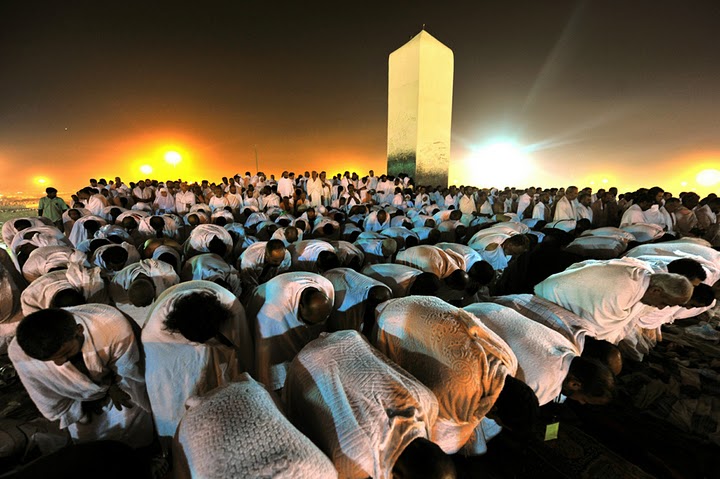
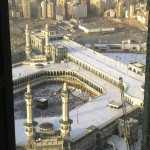
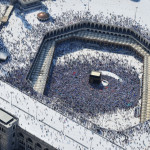
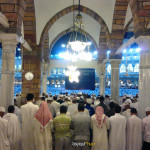
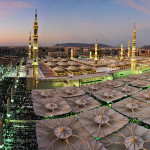
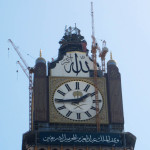
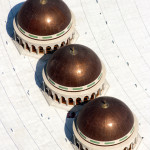
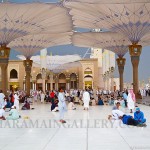
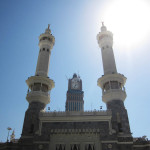
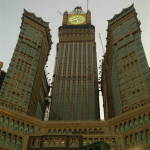
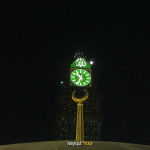
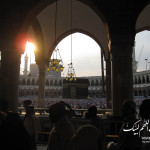
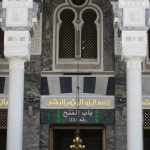
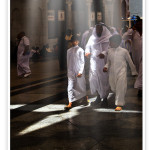
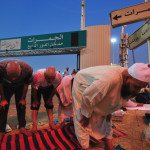
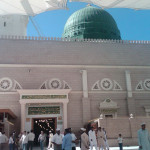
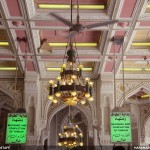
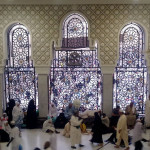
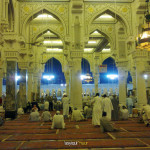
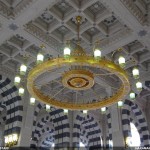
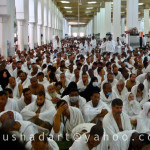
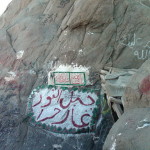
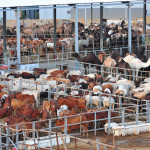
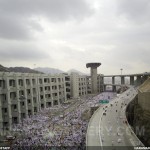
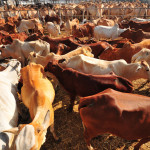
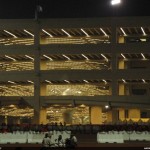
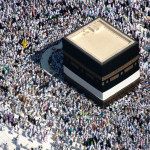
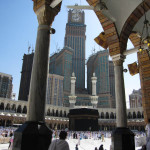
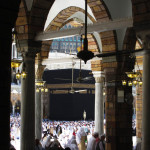
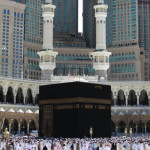
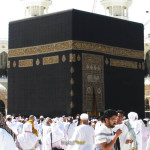
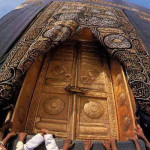
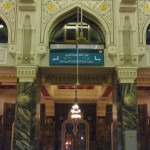
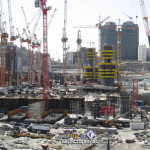
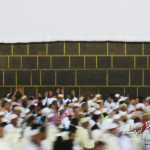
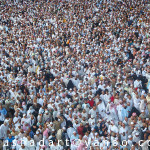
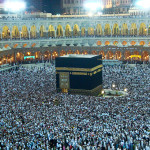
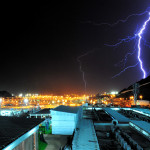
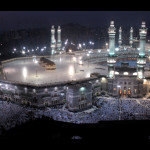
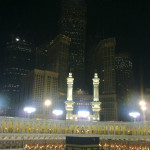
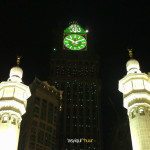
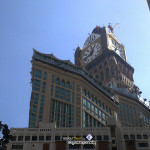
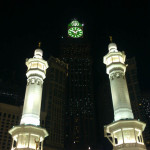
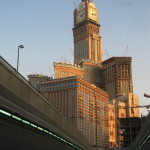
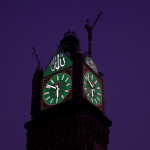
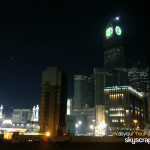
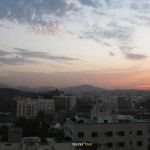
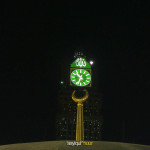
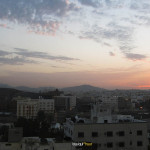
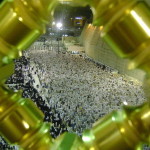
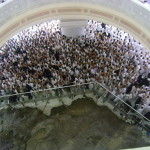
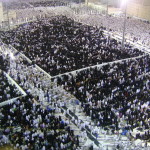
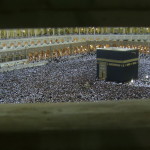
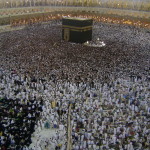
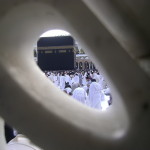
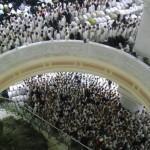
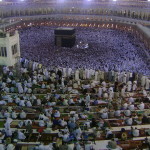
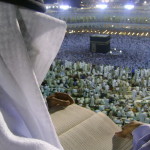
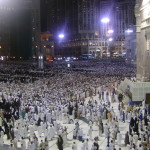
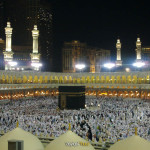
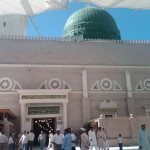
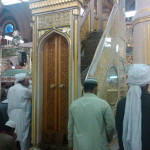
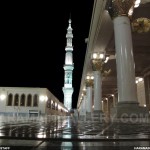
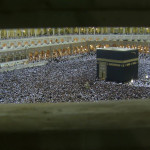
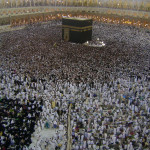
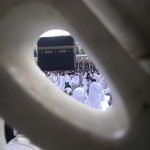
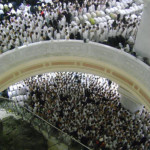
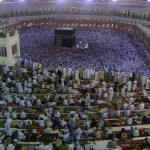
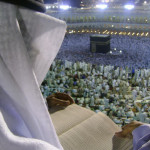
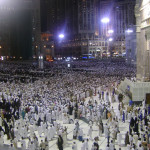
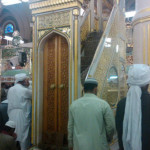
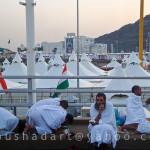
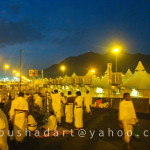
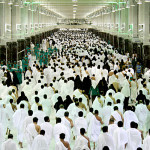
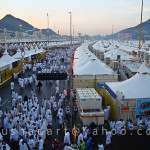
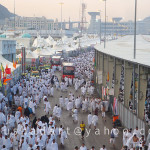
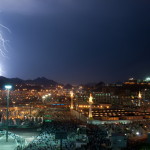
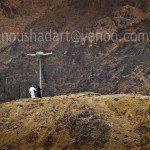
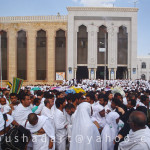
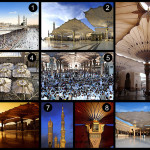
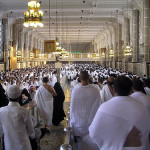
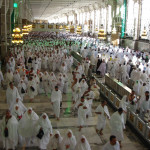
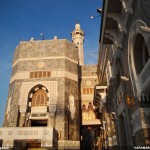
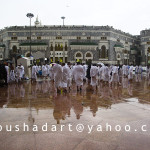
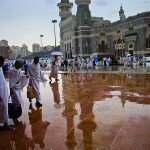
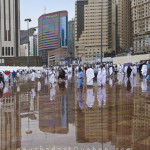
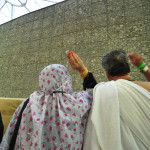
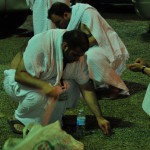
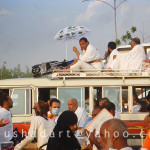
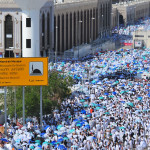
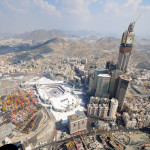
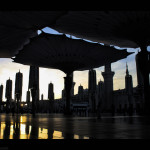

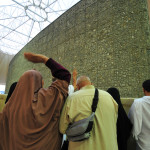
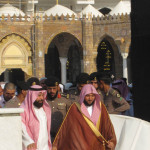
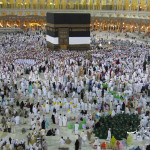
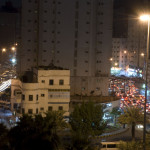
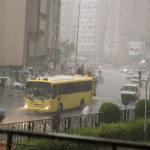
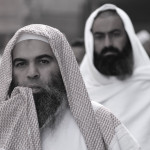
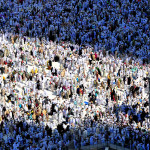
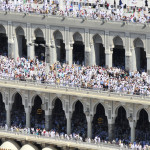
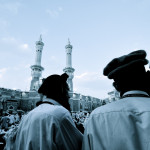
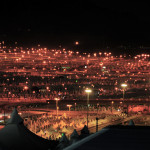
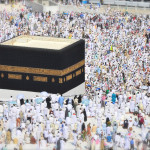
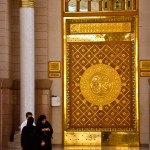
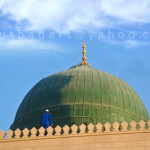
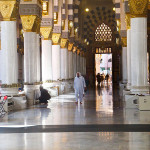
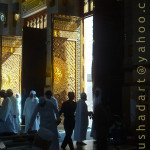
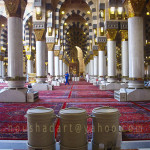
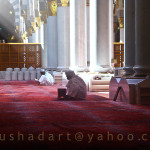
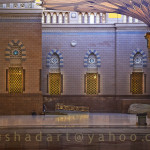
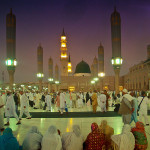
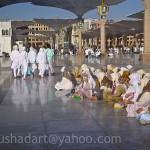
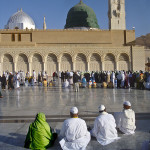
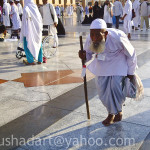
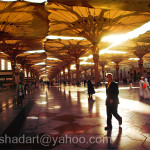
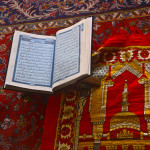
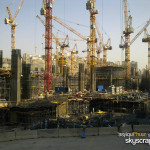
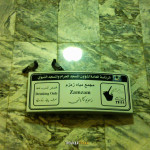
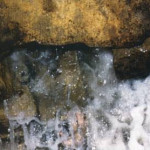
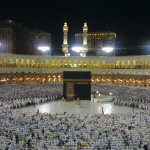
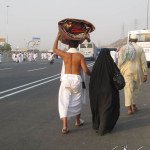
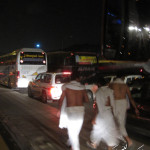
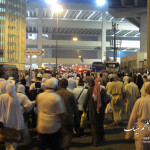
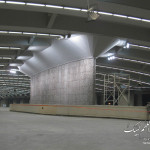
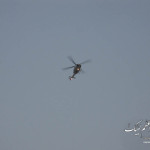
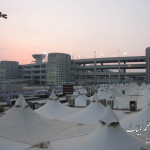
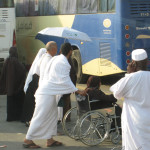
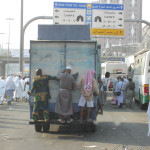
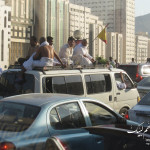
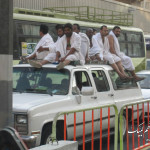
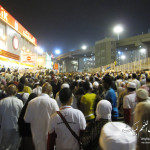
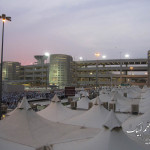
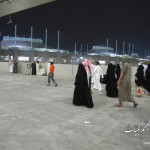
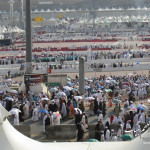
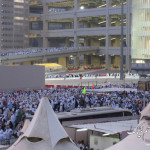
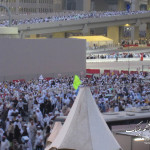
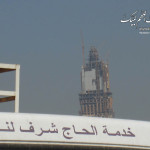
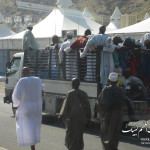
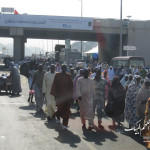
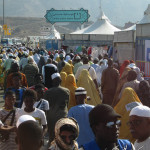
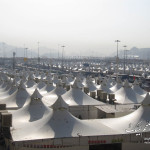
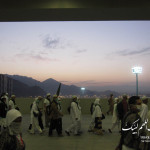
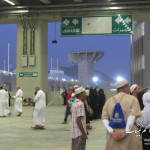
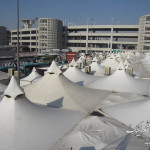
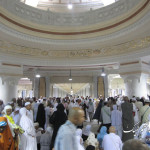
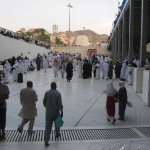
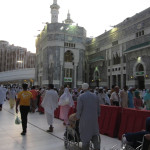
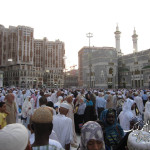
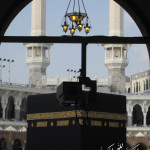
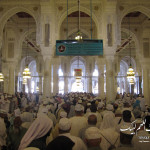
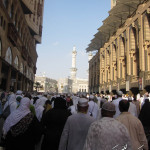
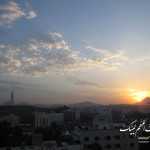
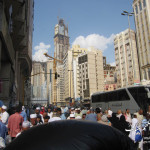
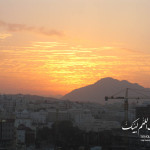
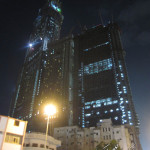

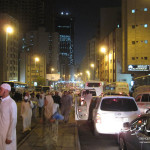
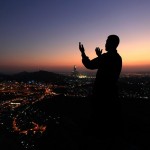
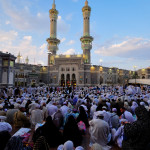
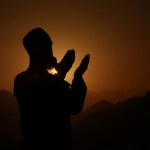
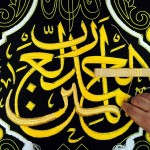
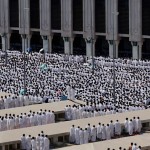
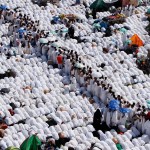
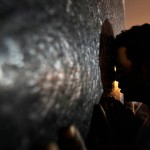
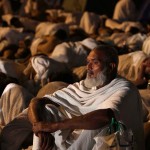
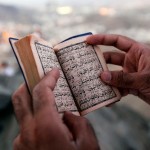
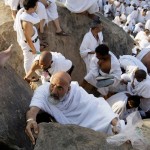
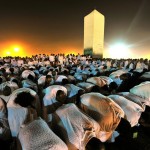
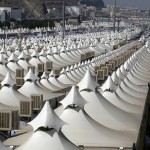
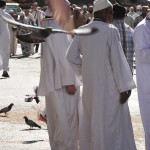
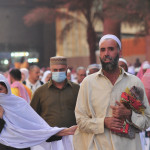
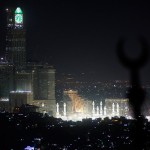
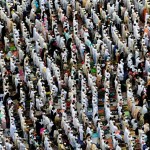
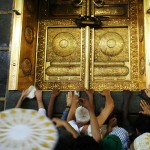
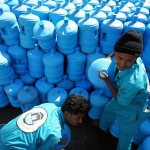
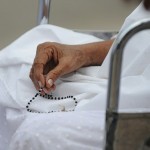
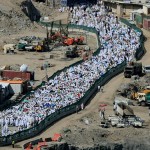
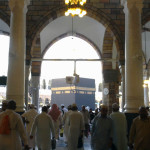
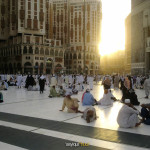
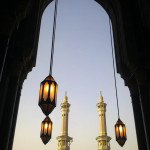
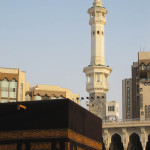
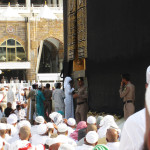
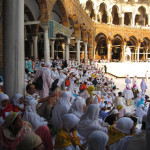
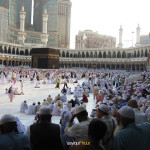
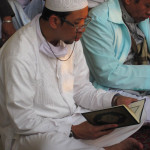
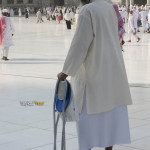
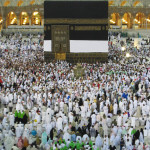
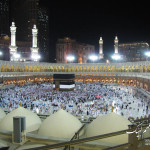
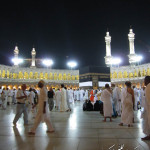
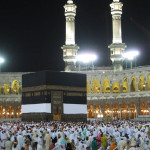
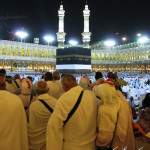
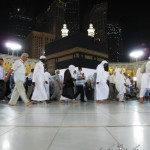
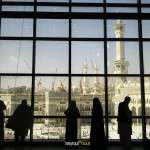
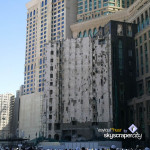
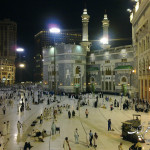
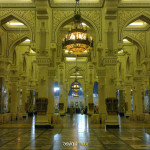
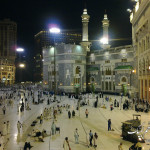
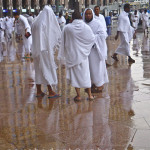
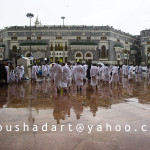
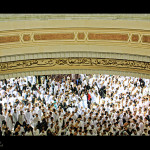
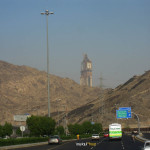
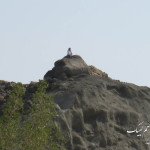









Subhan Allah May Allah shower His blessing upon you. You indeed have done a very fine job here, as I lost my mobile at the end of Haj while returning back to Pakistan and had been missing my pictures taken during Hajj. Thanks indeed because I have now saved these pics.
Nadeem-Ud-Din Karachi, Pakistan
The Blessed Days of Dhul-Hijjah
The month of Dhul-Hijjah is a season of worship, and seasons of worship bring along blessings, benefits and opportunities to correct one’s faith and make up for shortcoming. Every one of these special opportunities involves some kind of worship, which brings the slave closer to his Lord. And Allah bestows His blessings and Favors on whom He wills. The fortunate person is he who makes good use of these special months, days, and hours, while worshiping Allah. He is most likely to be touched by the blessings of Allah. [Ibn Rajab, al-Lataa’if pp. 8]
The first ten days of Dhul-Hijjah are marked blessed for both, the pilgrims and the non-pilgrims. Rewards of good deeds are multiplied in these days. Imaam Ibn Qayyim (rahimahullah) (d. 751H) said: “Indeed, its days are the most excellent of all the days with Allah. It has been confirmed in Saheeh al-Bukharee from Ibn Abbas (radhi allahu anhu) that the Messenger of Allah (sallallahu alaihi wa-sallam) said: “No deed are more virtuous than deeds on these days.” The companions asked: ‘Not even Jihad (fighting in Allah’s Cause)?’ He (sallallahu alaihi wa-sallam) replied: “Not even Jihad for the sake of Allah, unless a man goes out risking himself and his wealth for the sake of Allah, and does not come back with anything.” [Saheeh al-Bukharee vol: 2, no: 457] And it is these ten days, of which Allah takes an oath saying: “By the dawn; by the ten nights.” [Soorah al-Fajr (89): 1-2] This is why it is recommended to increase in making Takbeer, Tahlil and Tamhid during these days.” [Zaad al-Ma’aad vol: 1, pp: 56]
Yawm al-Arafat: The 9th day of Dhul-Hijjah is the day of Arafat. It is this day when the pilgrims gather on the mountain plain of Arafat, praying and supplicating to their Lord.
The day of Arafat holds great importance in Islam since this is the Day when Allah completed his revelation on His Messenger (sallahu alaihe wa-sallam). It is reported in the Saheehayn (i.e. Saheeh al-Bukharee and Saheeh Muslim), from Umar Ibn al-Khattab (radhi allahu anhu) that a Jewish man said to him: “O Ameer al-Mumineen (O head of the Muslims)! There is a verse in the Qur’aan, which if was revealed on us, the Jews, we would have taken that day as an Eid (festival).” Umar asked: “Which verse?” He said: “This day I have perfected your religion for you, completed My favor upon you, and have chosen for you Islam as your religion.” [Soorah al-Maidah (5): 3] Umar (radhi allahu anhu) said: “We know on which day and in which place was this verse revealed to Allah’s Messenger (sallahu alaihe wa-sallam). It was when he was standing in Arafat on a Friday.”
Arafat is the day on which Allah took the covenant from the progeny of Adam (alaihis-salaam), it was reported that Ibn Abbas (radhi allahu anhu) narrated: “The Messenger of Allah (sallallahu alaihi wa-sallam) related: “(When Allah created Adam (alaihis-salaam) Allah took covenant from him in a place Na’maan on the day of Arafat, then He extracted from him all the descendants who would be born until the end of the world, generation after generation, and spread them out in front of Him in order to take a covenant from them also. He spoke to them face to face saying: “Am I not your Lord?” and they all replied: “Yes, we testify to it.” Allah then explained why He had all of mankind bear witness that He was their Creator and only true God worthy of worship. He said: “That was in case you (mankind) should say on the Day of Resurrection, ‘Surely, we were unaware of this. We had no idea that You, Allah, were our Lord. No one told us that we were only supposed to worship You.” …” [(Saheeh) by Shaikh al-Albanee in Silsilah al-Ahaadeeth as-Saheehah vol: 4, no: 1623] Indeed, the day of Arafat is a blessed day and there is no other covenant greater than this covenant!
Arafat is a day of Forgiveness from sins, freedom from the Hell-Fire for the people who are present in the plain of Arafat. Aa’ishah (radhi allahu anha) narrated the Messenger of Allah (sallallahu alaihi wa-sallam) saying: “There is no day on which Allah frees more people from the Fire than the day of Arafat. He comes close and expresses His pride to the angels saying, ‘What do these people (the Hajis) want?’” [Saheeh Muslim]
This Haadeeth mentions forgiveness for the pilgrims. In addition to this, fasting on the day of Arafat is a Sunnah and an expiation of sins for the residents.
Hunaydah ibn Khaalid reported from his wife that some of the wives of the Prophet (sallallahu alaihi wa-sallam) said: “The Messenger of Allah (sallallahu alaihi wa-sallam) used to fast on the ninth of Dhul-Hijjah, on the day of Aashoorah, on three days of each month, and on the first two Mondays and Thursdays of each month.” [(Saheeh) by Shaikh al-Albanee in Saheeh Abi Dawood vol: 2, no: 462]
It is reported in Saheeh Muslim that when the Messenger of Allah (sallallahu alaihi wa-sallam) was asked about the fasting on the day of Arafat, he said: “It expiates the sins of the previous year and that of the following year.” [Saheeh Muslim] This fasting is Mustahabb only for the non-pilgrims and not for the Hajis (the pilgrims) because it was not the practice of Allah’s Messenger (sallallahu alaihi wa-sallam) to fast on the day of Arafat during pilgrimage and in a narration he also forbade doing so. Imaam at-Tirmidhee (rahimahullah) (d. 275H) said: “The People of Knowledge consider it recommended (Mustahabb) to fast on the day of Arafat, except for those at Arafat.” [Jaami’ut-Tirmidhee (3/377)]
Yawm an-Nahr: The tenth day of Dhul-Hijjah is the greatest day of Hajj. It is known as Yawm an-Nahr (the day of Sacrifice), since it marks the ending of the major rite of Hajj – the Sacrifice. And it is on this day that the Muslims commemorate the bounties and blessings of Allah. It was recorded in a Hadeeth by Imaam Ahmad (in his Musnad vol: 4, no: 350) that the day of Nahr is the most virtuous day to Allah. The Messenger of Allah (sallallahu alaihi wa-sallam) said: “The greatest day of Hajj (Pilgrimage) is the Day of an-Nahr (Slaughtering).” [(Saheeh) by Shaikh al-Albanee in Irwa al-Ghaleel (no: 1101). Abu Dawood no: 1945]
Imaam Ibn Taymiyyah (d. 728H) said: “The most excellent day of the week is the day of Jumuah (Friday), by the agreement of the Scholars. And the most excellent day of the year is the day of an-Nahr. Some of them said that it is the day of Arafat. However, the first opinion is the correct one, since it is related in the Sunan collections that the Prophet (sallallahu alaihi wa-sallam) said: “The most excellent days with Allah is the day of an-Nahr, then the day of al-Qarr (the day that the Muslims reside in Mina).” [(Saheeh) by Shaikh al-Albanee in Irwa al-Ghaleel (no: 2018). Related by Abu Dawood no: 1765].” [Majmoo al-Fatawa vol: 25, pp. 288]
The day of An-Nahr is also known as ‘Eid al-Adhaa’ meaning the festival of Sacrifice and it is one of the two festivals which Allah has granted to the Ummah of Prophet (sallahu alaihe wa-sallam). Anas (radhi allahu anhu) narrated, “Allah’s Messenger (sallallahu alaihi wa-sallam) came to Medina and the people of Medina in the days of Jahiliyyah had two days of play and amusement. So, Allah’s Messenger (sallallahu alaihi wa-sallam) said: “I came to you and you had in Jahiliyyah, two days of play and amusement. Allah has replaced something better for you. The Day of an-Nahr and the day of al-Fitr.” [(Saheeh) by Haafidh Ibn Hajr in Buloogh al-Maraam. Related by Musnad Ahmad vol: 3, no: 103]
The Messenger of Allah (sallallahu alaihi wa-sallam) said: “The day of al-Fitr, and the day of an-Nahr, and the days of at-Tashreeq (the three days after an-Nahr) are our days of Eid (festivity); and they are days of eating and drinking.” [(Saheeh) by Shaikh al-Albanee in Saheeh al-Jamee (no: 8192). Related by Musnad Ahmad (no: 1945)]
Glorifying Allah with Takbeer: (Takbeer al-Muqayyid): From the day of Arafat until the Asr prayer of the 13th day of Dhul-Hijjah, one should make Takbeer after every obligatory Salaat. Ibn Abee Shaybah relates that Alee (radhi allahu anhu) used to make the Takbeer beginning after the Fajr prayer on the day of Arafat, until after the Asr prayer on the last day of at-Tashreeq.” [(Saheeh) by Shaikh al-Albanee in al-Irwa. Related by Ibn Abee Shaybah in al-Musannaf]
Shaikh al-Islam Ibn Taymiyyah (rahimahullah) said: “The most correct saying concerning the Takbeer – that which the majority of the Salaf (Pious Predecessors), and the Scholars from the Companions and Imams were upon – is to begin making the Takbeer from Fajr (dawn) on the day of Arafat up until the last day of at-Tashreeq (the thirteenth of Dhul-Hijjah), after every Prayer.” [Majmoo al-Fatawa (24/220)]
Imaam al-Khattaabee (rahimahullah) (d. 456H) said: “The wisdom behind saying the Takbeer in these days is that in the times of Jahiliyyah (pre-Islamic ignorance), they used to slaughter for their Taaghoots (false objects of worship). So the Takbeers were prescribed in order to indicate that the act of slaughtering is directed to Allah alone, and by mentioning only His Name.” [Fath al-Baree]
As regards to the actual wording of the Takbeers, then nothing authentic has been related from the Messenger of Allah. However, the following have been reported from the Sahabah:
1. Ibn Mas’ood (radiyallahu anhuma): “Allahu Akbar, Allahu Akbar, La ilaha illa Allah, Allahu Akbar, Allahu Akbar wa lillahil-Hamd.” [(Saheeh) Irwaa al-Ghaleel (650), Daraqutne, Ibn Shaibah] (Allah is the Greatest, Allah is the Greatest, There is none worthy of worship except Allah. Allah is the Greatest, Allah is the Greatest and to Allah belongs all praises)
2. Ibn Abbas (radiyallahu anhuma): “Allahu Akbar, Allahu Akbar, Allahu Akbar wa lillahil-Hamd; Allahu Akbar wa-ajal, Allahu akbaru ala mahadana.” [(saheeh) – Bayhaqee (3/315)] (Allah is the Greatest, Allah is the Greatest, Allah is the Greatest and to Allah belongs all praises. Allah is the Greatest to that which He has guided us to)
3. Salman (radhi allahu anhu) : “Allahu Akbar, Allahu Akbar, Allahu Akbar kabeera.” [(saheeh) – Bayhaqee (3/316)] (Allah is the Greatest, Allah is the Greatest, Allah is the Greatest)
“Increase in these days you Tahlil, Takbeer and Tamhid.” (Takbeer al-Mutlaq)
“…And mention the name of Allah on the appointed Days…” [Soorah al-Hajj (22): 28] This verse has been explained (by some) to mean the ten days of Dhul-Hijjah. Scholars consider it desirable to increase Dhikr (remembrance of Allah) in these days, because the Messenger of Allah (sallallahu alaihi wa-sallam) is reported to have said: “There are no days that are greater to Allah or in which deeds are more beloved to Him than these ten days, so increase your Tahlil, Takbeer and Tamhid during these days.” [Musnad Ahmad] Tahlil, Takbeer and Tamhid mean saying ‘La ilaha illa Allah’, ‘Allahu Akbar’ and ‘al-Hamdu lillah’, respectively.
Ishaaq narrates from the scholars of the Taabi’een that in these ten days they used to say: Allahu-Akbar, Allahu-Akbar; Laa-ilaaha-ill-Allah; waAllahu-Akbar, Allahu-Akbar; Wa-lillaahil-hamd.
It is a beloved act to raise the voice when saying the Takbeer in the markets, the houses, the streets, the masjids and other places, because of the saying of Allah Most High in Soorah al-Hajj verse 37: “…that you may magnify Allah for His Guidance to you…” Imaam Bukharee (rahimahullah) said in the book of al-Idayn in the chapter of the Virtue of good) deeds during the days of Tashreeq, Ibn Umar and Abu Hurayrah (radhi allahu anhuma) would go out in the marketplace during the ten days and say Takbeer, and the people would say Takbeer when they said Takbeer.” [Saheeh al-Bukharee]
The Sunnah is to say the Takbeer individually. The saying of Takbeer in congregation, i.e., everyone pronouncing the Takbeer with one voice, is not permissible since this has not been transmitted (to us) from the early generations of the Sahaabah and those who followed their ways. .This is applicable for all Dhikr and supplications, except if the person doesn’t know what to say. In that case he may repeat after someone else until he learns (the words to be said).
What You Can Do in these Blessed Days of Dhul-Hijjah?
The days of Dhul-Hijjah are the most blessed ones; therefore every Muslim should make much from this opportunity. Among the blessings of Allah is that He has given us many ways to perform good deeds and to worship Him, so that the Muslim may be constantly active and consistent in his worship of his Lord. Here are some out of many good deed, which you can perform in these days.
Remember, deeds, which are less preferred are made superior and more beloved to Allah in these days, than the superior deeds performed at other times!! This is indicated in the Hadeeth where the Messenger of Allah (sallallahu alaihe wa-sallam) said regarding Jihad which is the most superior of all deeds to be less superior than the voluntary fast in these days, except that the Mujahid, “goes out risking himself and his wealth for the sake of Allah, and does not come back with anything.” [Saheeh al-Bukharee]
Hajj and Umrah are the best deeds performed in Dhul-Hijjah.
Fasting as many days as possible, especially the day of Arafat, which is a Sunnah. Fasting is one of the best of deeds. Allah chose fasting for Himself from all the good deeds, as is stated in the Hadeeth Qudsee: “All the deeds of the son of Adam are for him, except for fasting, which is for Me and I am the One Who will reward him for it.” [Saheeh al-Bukharee (1085)]
Takbeer al-Muqayyid: The Takbeer, which is restricted to the time after the five obligatory Salaat. This begins from after Fajr prayer of the day of Arafat (for the non-pilgrims) until the Asr prayer of the last day of Tashreeq.
Takbeer al-Mutlaq: The unrestricted Takbeer; ‘Allahu Akbar’, at all times of night and day until Eid al-Ahda.
Perform plenty of Nafl (voluntary) prayers.
Recite and Memorize the Qur’aan.
Abstain from disobedience and sins, because disobedience is the cause of Allah’s Anger. The Messenger of Allah (sallallahu alaihe wa-sallam) said: “Verily Allah has a sense of Ghayrah (honor, prestige and anger over it’s violation), and Allah’s sense of Ghayrah is provoked when a person does that which Allah has made prohibited.” [Saheeh Bukharee and Saheeh Muslim] Whereas, obedience and abstaining from all those things, which Allah has prohibited, is a form of worship and a means to achieve Allah’s Love.
Hasten to make Sincere Tawbah (Repentance) to Allah because repentance means coming back to Allah. It is forgoing all those deed, which Allah dislikes in open and in secret, out of regret for what has passed, abandoning them immediately and being determined not to return to it again. When a Muslim combines repentance with good deeds during the most virtuous days, this is a sign of his success. Allah says: “But as for him who repented, believed and did righteous deeds, then he will be among those who are successful.” [Soorah al-Qasas (28): 67]
Give Charity
Attend Salaat al-Eid and the Khutbah.
Slaughter Udhiyah (Sacrifice) on the day of Eid al-Adha is another good deed which brings the slave closer to his Lord.
There is much to be gained, so make the most of this these invaluable and irreplaceable days.
Yes these are good packages, i have searched the market and find some more good hajj and umrah packages from ehajjumrah.co.uk / 0207 9935 801